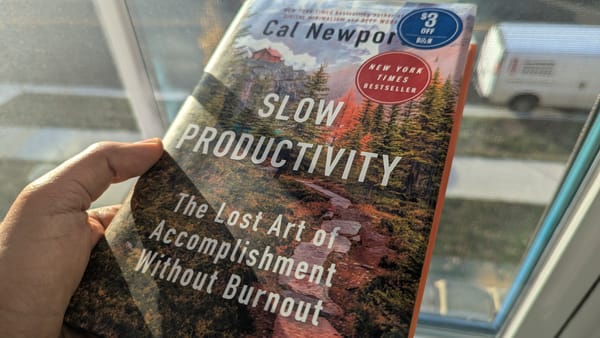Robert Greene on Human Nature, Character, and Navigating the Invisible World of the Self
In a truly engaging conversation with Jay Shetty on his podcast, On Purpose, Robert Greene pulls back the curtain on human nature and dives deep into the intricate dance of understanding ourselves and those around us.
Here are some key insights from the conversation, Greene...
- Unpacks the nature of negativity in others: He explains that dealing with negative people, whether family, friends, or colleagues, often requires recognizing that their behavior stems from their own inner emptiness and historical issues. It's a powerful shift in perspective to understand that their negativity is not inherently personal to you; they are venting their own struggles. The challenge lies in the fact that negative individuals thrive on stirring up drama and seeking attention by upsetting others. Gaining a sense of distance and reminding yourself that you are separate from their problems is incredibly liberating and helps you avoid getting pulled into their emotional vortex. ⏰ 0:04:51
- Highlights the crucial difference between appearance and character: It's easy to be swayed by someone's intelligence, charm, or charisma, especially in a world that often celebrates arrogance and showmanship. However, Greene emphasizes that these outward traits can be deceptive, as humans are "born actors" skilled at hiding their true selves behind a mask. The real measure of a person, he argues, is their character – whether it's strong or weak. This means looking beyond the surface and observing how someone handles criticism, stress, and power. This distinction is vital in choosing who you allow into your life, as associating with negative or toxic individuals can significantly impact your own energy and well-being. ⏰ 0:08:45
- Defines the markers of a strong character: Greene paints a clear picture of what constitutes strong character. It's the ability to gracefully accept criticism and use it constructively for growth, rather than becoming defensive. A person of strong character can navigate stressful situations without their mask falling off, demonstrating resilience and patience instead of fragility and impatience. Furthermore, their character remains consistent even when they gain power; they don't become abusive or treat those below them poorly. How they behave in non-work settings, like games or outdoor activities, also offers clues – are they overly competitive even when it doesn't matter? These are the subtle, yet significant, indicators of a reliable and grounded individual. ⏰ 0:10:25
- Explores the personal pull towards negative people: Interestingly, Greene reflects on his own tendency to get involved with narcissistic individuals, linking it possibly to his upbringing and a feeling of inner emptiness. He suggests that the charm and feigned attention offered by such personalities can be enchanting, drawing in those who are looking for something to fill a void within themselves. This attraction can extend to charismatic leaders or causes that promise a sense of purpose where one feels lacking. It highlights how our own internal state can influence the types of people and situations we are drawn to, sometimes leading to patterns of choosing those who are ultimately detrimental to our well-being. ⏰ 0:13:40
- Presents work and ideas as a path to fulfilling inner emptiness: For Greene, his sense of purpose and a way to combat inner emptiness has always been rooted in his work and the constant pursuit of new ideas and perspectives. He sees his writing not just as a profession, but as intrinsically tied to his identity, something he was "destined to write". This passion provides a daily drive and a feeling of being alive. He contrasts this with viewing work merely as a means to an end (like getting money), emphasizing the deeper fulfillment that comes from engaging with something that truly captivates you and allows for continuous learning and growth. ⏰ 00:15:20
- Offers a Buddhist perspective on the nature of self and emptiness: Drawing on his meditation practice, Greene introduces the concept of emptiness not as a void to be filled, but as a potentially beautiful state. He explains that the idea of a fixed "self" is a construction of the mind, and true enlightenment involves recognizing this egolessness. Thoughts, he notes, are like phantoms or shadows – not inherently real, unlike the tangible reality of our bodies and the present moment. This perspective challenges the constant need to fill our minds and encourages an awareness that our thoughts are separate from who we are. ⏰ 00:26:10
- Explains the power of questioning beliefs and challenging internal narratives: Greene advocates for a process of continually questioning our beliefs and internal narratives, exploring where they originated and why they feel so ingrained. This isn't about creating uncertainty for its own sake, but rather a path to getting closer to our true essence and what genuinely matters to us. He describes this as solving the puzzle of who you are, cutting away the societal and external influences that have been imposed upon you. This rigorous self-examination, while potentially unsettling, ultimately leads to a deeper understanding of one's purpose and a stronger sense of certainty in life. ⏰ 00:32:34
- Reflects on the impact of external perception versus internal reality: Greene shares the intriguing experience of how external success and public perception can differ greatly from one's internal reality. He notes that people's ideas of who he is based on his books are often far from his personal understanding of himself, including his more casual, even childish, side. He expresses discomfort with being labeled as a "self-help guru," feeling it doesn't align with his core identity as someone who loves ideas and expanding consciousness. This highlights the potential trap of becoming overly influenced by how others see you, which can lead to feeling like an imposter and losing touch with your authentic self. ⏰ 00:41:47
- Advocates for immersing oneself in ancient cultures and languages to expand consciousness: Greene passionately recommends exploring ancient cultures, their music, and their languages as a powerful way to broaden our understanding and consciousness. He explains how the rhythms and sounds of ancient music, like that from Greece, can feel alien yet capture the spirit of a different time, offering a stark contrast to the often limited harmonies of modern music. Reading texts from different eras and cultures, such as Aztec philosophy or the writings of an 11th-century Zen monk, exposes us to entirely different thought processes and ways of accessing reality that our contemporary, often homogenized, world may not offer. This exploration, he argues, reveals that the human mind is far more expansive and interesting than we often realize. ⏰ 01:03:25
- Contrasts the richness of ancient sensory experience with the sanitization of the modern world: Greene paints a vivid picture of the sensory world of a thousand years ago, free from the constant mechanical sounds of cars and machines, filled instead with the natural sounds of birds and the rawness of human smells. He contrasts this with the sanitized and often dulling sensory experience of the 21st century, where even common smells are absent and our auditory landscape is dominated by packaged, uniform sounds. By imagining ourselves in these ancient environments, perhaps through reading about daily life in past civilizations, we can gain a sense of how much our own sensory world has shrunk and appreciate the potential for a richer, more expansive connection to our surroundings. ⏰ 01:05:30
- Emphasizes the importance of language in shaping thought and consciousness: Greene highlights the profound connection between language and consciousness, noting that the origin of language is intrinsically linked to the origin of human awareness. He expresses concern that the limited language prevalent in social media – characterized by memes, trends, and hashtags – is creating a very restricted space for our thoughts and minds. By contrast, exploring other languages, as Jay shared with the Sanskrit term "antarakash" meaning "inner sky", immediately opens up expansive ideas about our internal world. Robert agrees that learning from the rich vocabulary of different cultures, like the Eskimos' many words for snow or the Russians' for blue, demonstrates how language can either expand or limit our perception and understanding of the world around us. This exchange underscores how different linguistic frameworks offer unique ways of accessing reality. ⏰ 01:06:37
- Shares his personal journey of learning to forgive himself: In a moment of vulnerability, Greene reveals that something he is actively trying to learn is self-forgiveness. He describes being extremely unforgiving towards himself, stemming perhaps from a deeply internalized feeling of "never good enough" from his upbringing. This self-criticism has likely contributed to him driving himself too hard, potentially even playing a role in his stroke. He explains that practicing forgiveness means recognizing when he's tired or exhausted and being gentle with himself, trusting that creativity and progress will come in time rather than succumbing to the fear that "the well is dry". Learning to be indulgent towards his own imperfections is the hardest challenge he faces, yet one he recognizes is crucial for his well-being. ⏰ 01:16:28
- Articulates the creative struggle and the trust required in the process: Greene openly discusses the inherent discomfort and uncertainty in the creative process, describing moments where his writing "doesn't feel right" and drives him "crazy". He relates this to the ancient Greek concept of the "daemon," an inner voice that guides towards something higher, but also can lead to feelings of inadequacy. Despite hitting walls and fearing his creative well is dry, he has learned to trust that eventually, the work will resonate and flow authentically. This struggle is a necessary part of the journey for many creatives, a cyclical challenge where overcoming the feeling of being stuck often leads to breakthroughs and work that feels truthful and real. ⏰ 00:53:55
Robert Greene: Bestselling author of The 48 Laws of Power with Jay Shetty: Host of On Purpose, former monk and wisdom sharer



